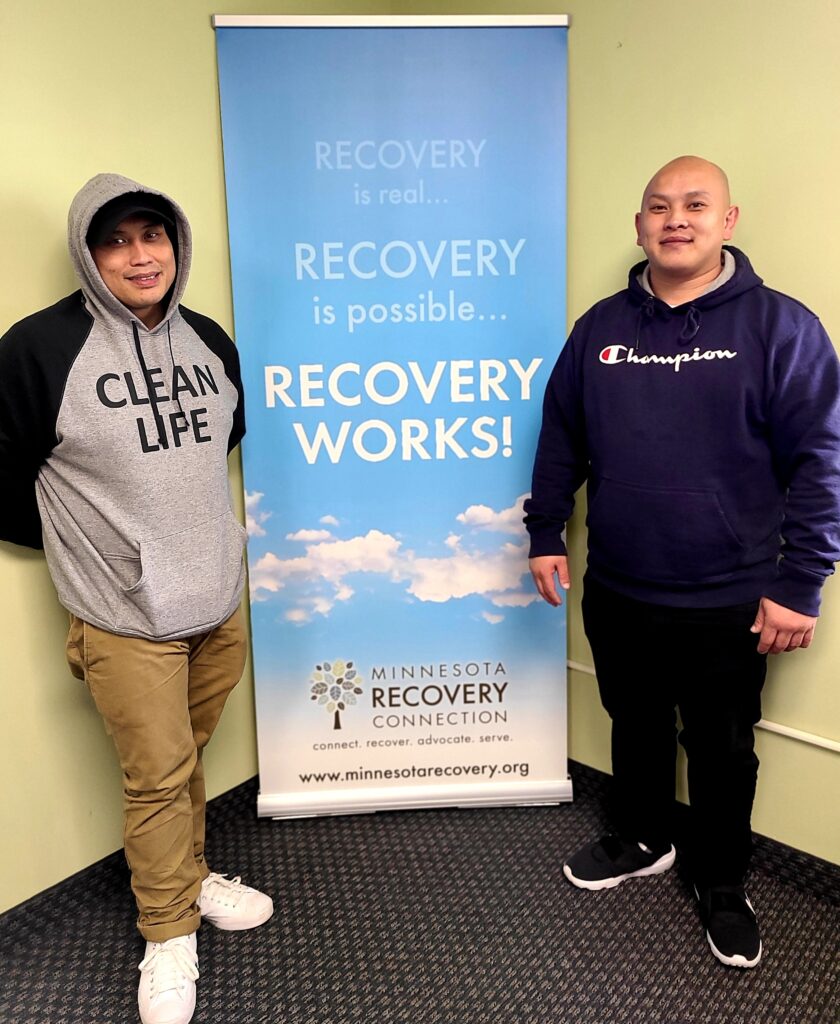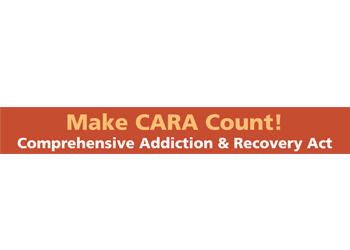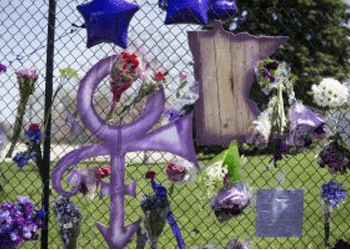Jackson and Hue are regular volunteers at Minnesota Recovery Connection. You’ll always find them filled with joy, smiling ear to ear, and ready to help wherever they can. Their stories express gratitude for recovery and their excitement to bring knowledge about substance use disorder back into their Hmong communities. We got the opportunity to learn more about the transformation that has taken place in their lives because of their recovery and what that means to them as Hmong Americans.

MRC: How has Minnesota Recovery Connection supported your recovery?
Jackson: This is the place to be, to come, it has changed the trajectory of my recovery. I feel like my recovery has stages that I go through. I want to be better with every month that comes. I want to learn something that I don’t know about recovery – terms about recovery and all the pathways. My recovery is pretty strong and there are a lot of things that I want to know so I can teach other people too along the way. MRC has given me the chance to do that and I am so proud of it. MRC has provided me with an opportunity for us to have a purpose to help other people, to do something bigger than myself.
Hue: MRC is so accepting of everyone’s path, like harm reduction for example. Everyone is accepted for who they are. It is a really good foundation for me to think about and see recovery. I is so much bigger than what I thought. And you know when I go to treatment and share these things with people, I realize that my perspective has changed. I can see how I was sick and extend that to others when I see them struggling. MRC has taught me to make others feel welcome when they come into the room, when they need help I am able to give them resources to help them. MRC has resources I can tell them about to help them find the help that they need to continue on this journey. I have learned how to have compassion for others and their struggles. I no longer see their mistakes. I have learned how to love them for who they are.
MRC: Tell us about what recovery means in the Hmong Culture?
Jackson: The Hmong culture is very reserved and quiet about recovery. It is a challenging topic to discuss within the community because if people are not affected by substance use disorder personally they do not see it as a big issue. I think people just aren’t ready to hear about it until they are ready. I have a brother that has been in recovery for 5 years. He just got off probation and that is one of my biggest motivators – watching his success because his recovery is so strong. The sibling rivalry makes me want to do better than him! I called him the other day to ask how he does it and what does he do so I can do it too and be as strong as him, and he said he was so proud of me and that I am really doing it!
Hue: Now that I am in recovery, I’ve realized that during active use my brain was under the influence of substances, and because of that I wasn’t able to talk about what was going on with me because my brain was fried and I was unable to communicate that with my community because they didn’t understand. I could barely understand what was going on with me. My folks didn’t understand why I was repeating behaviors that were not healthy. I was surrounded by active use and the behaviors seemed normal to me because everyone was doing it. I felt like since everyone was doing it, it was acceptable to be affiliated with the substance use violence and my world was so small because of the substance use influence.
MRC: What do barriers to you think the Hmong Community faces in supporting recovery?
Jackson: The community needs more guys like us with lived experience from our point of view. Certified Peer Recovery Specialists are needed to educate people and provide support about our culture. We need more Hmong Peer Recovery Specialists, to teach, educate and even learn more about recovery. Most importantly, we need recovery coaches to bring more resources and information about recovery into the community.
Education is so important, it will help people not lose hope.
Hue: Our community is in need of more education about substance use disorder and how to support those who are affected by it. I have seen others with substance use issues in the community feel like they need to hide it or are very withdrawn. If they knew there were people to help them, maybe they wouldn’t feel that way. Education is so important, it will help people not lose hope. Overall, if there is more knowledge and education in the community about recovery it will help, and most importantly cut down on crimes and deaths that are related to substance use.
MRC: Tell us about your dreams for the future, what are you looking forward to in recovery?
Jackson: When I was in inpatient treatment I was talking to one of the addiction technicians and they told me that I can do exactly what they are doing and get paid to do something that is very natural to me, helping people. I honestly didn’t think that I would stick it out this long and now I am so grateful for where I am at. I just completed my GED which is a huge accomplishment for me because I have many gaps in my work history and didn’t have a high school diploma. I used to be really embarrassed about it but now I use it as motivation and I am so grateful for the work that I have put in because now I have purpose and people care about me. Now that I completed my GED, I could take the Recovery Coach Academy and become certified to find employment in the field. I want to work in a treatment setting, but I hope to eventually do even more. I can always be doing things to better myself and help others around me.
Hue: There are a lot of things that I want to do but for right now I want to connect the Hmong American Partnership with Minnesota Recovery Connection hoping that they can learn more about substance use disorder and the impact it has on their people. My hopes are to remove the barriers that I struggled to get through and connect my community with more resources like Minnesota Recovery Connection and ultimately be able to help those who suffer from substance use disorder and alcohol use disorder. I also look forward to being in the field of recovery because I just obtained my Peer Recovery Specialist certificate through the Recovery Coach Academy. I am hoping to help grow the recovery community in the Hmong community and make a difference. Everyone is affected by SUD, so for them to see, spread hope, and share my lived experiences I hope to help at least one person. There is a bond there when two people in recovery are connected.
Learn more about our Volunteer Program at Minnesota Recovery Connection!
Minnesota Recovery Connection is a Recovery Community Organization – a grassroots nonprofit whose staff, volunteers, and Board of Directors are all people in personal or family recovery or are community allies. We are dedicated to strengthening the recovery community and are proud to share our stories.




